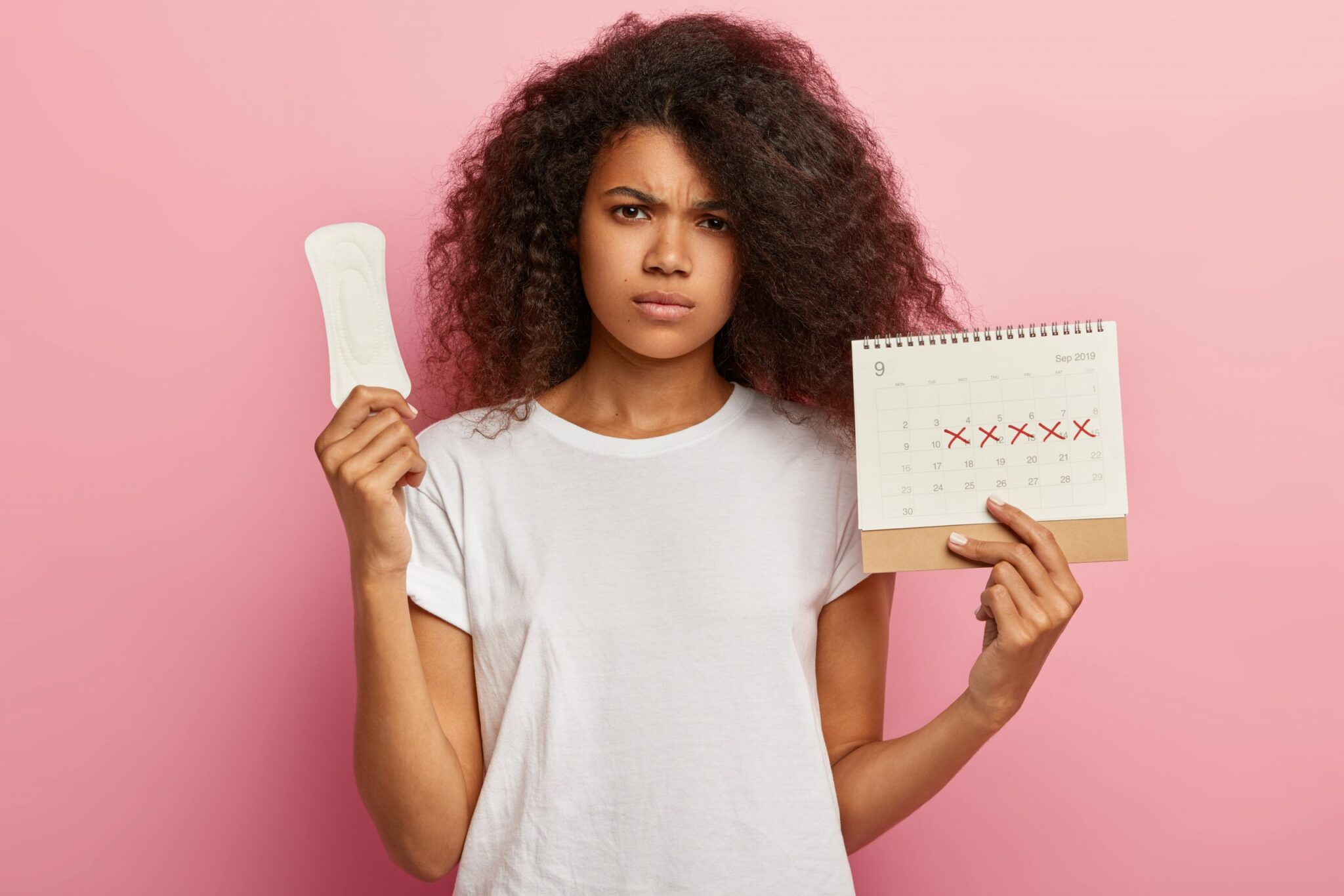كيف يمكن تنظيم الدورة الشهرية؟

Regulate my periods: Many women experience irregular periods throughout their reproductive years. For some women, any irregularities are transient; perhaps they have only recently gone through puberty, or are approaching menopause, both of which can cause erratic menstrual cycles.
Alternatively, experiencing a stressful event, or abruptly changing one’s diet, can disrupt the menstrual cycle for a time. Other women have issues or conditions that mean they are prone to irregular menstrual cycles for the entirety of their reproductive lifetime.
Why is regulation important?
Having an unpredictable menstrual cycle can be inconvenient and irritating. Not knowing when you are going to bleed each month might make planning things difficult and means you always have to be prepared and carry the relevant paraphernalia with you. You can try wearing period pants, such as Modibodi, to help manage irregular menstruation.
However, for those women hoping to conceive, an irregular menstrual cycle can mean more than just a lifestyle disruption. Having irregular periods can make it very difficult to get pregnant. For pregnancy to occur, a female must ovulate. In fact, the days surrounding ovulation are the only ones in which a female is fertile. Some women with irregular periods do not ovulate at all, others do, but identifying when it has happened is a lot more challenging if cycle length changes each month.
Those women with a regular 28-day cycle will ovulate on approximately day 15 of their cycle. However, for those with irregular cycles, the day of ovulation will likely fluctuate. There are methods for monitoring when it is likely to have occurred, including measuring basal body temperature and checking cervical secretions, but these methods rely on identifying patterns across a number of months and thus, are not optimized for those with variable cycle lengths. This can mean that the route to pregnancy can be long and stressful for those women who have irregular periods.
How to regulate your periods
There are so many reasons why a woman may be experiencing irregular periods that the first step has to be determining the reason, or reasons, behind it. Some of the main causes are listed below, along with tips and techniques for improving your regulate my periods
- Age. If you have recently been through puberty, or are approaching menopause you may find your periods are erratic in nature, timing and duration. Time and patience are the best solution here, as over time they should settle, or stop altogether.
- Medical conditions. If you think that your irregular menstrual cycle is a sign of an underlying health issue, you should consult your doctor. They will be able to perform any necessary checks and tests. Conditions such as PCOS and thyroid disorders frequently disrupt the menstrual cycle and can result in fertility issues. Lifestyle changes, such as weight loss and improving the diet can significantly improve the symptoms of PCOS.
- Extreme exercising or dieting. Losing weight will often improve a person’s health and minimize their risk of developing a number of chronic conditions, including type 2 diabetes, cancer and cardiovascular disease. Obesity can also make it more difficult for a female to fall pregnant, so all healthcare practitioners will advocate the benefits of maintaining a healthy weight. However, weight loss should be controlled and gradual. Extreme dieting or exercise can result in additional medical issues, including menstrual cycle irregularities. If you do want to lose weight safely, the best option is to approach a trained professional, such as a personal trainer or a nutritionist, who will be able to optimise a plan that is personalised to your needs.
- Stress. Going through a period of emotional tension can affect your health in a number of ways. One physical symptom of stress is irregular periods. If you feel like your stress is becoming unmanageable you should certainly seek medical advice; but you may also want to consider natural approaches such as yoga to help calm the mind, reduce tension and alleviate some of the associated symptoms. A trained psychologist or therapist will be able to help you understand and address why you are feeling stressed and what the triggers are.
- Birth control. Some forms of hormonal birth control cause periods to stop altogether; others cause irregular bouts of (usually) light spotting. If you are unhappy about how your current method of birth control is affecting your cycles, you should seek advice from your doctor and consider switching to a different type.
Conclusion
Having irregular periods can be a source of worry and concern, particularly if you are unsure why they are erratic. Stress is one of the main and underappreciated triggers for abnormal menstruation, either directly or indirectly. For example, it can lead a woman to alter her eating and exercise habits, both can contribute to further escalation of the problem. Identifying the cause, or causes means that you can start to explore options for making your cycle more regular.
Nabta is reshaping women’s healthcare. We support women with their personal health journeys, from everyday wellbeing to the uniquely female experiences of fertility, pregnancy, and menopause.
Get in touch if you have any questions about this article or any aspect of women’s health. We’re here for you.
Sources:
- “Abnormal Menstruation (Periods).” Cleveland Clinic, https://my.clevelandclinic.org/health/diseases/14633-abnormal-menstruation-periods.
- Farrukh, J B, et al. “Abnormal Uterine Bleeding: Taking the Stress out of Controlling the Flow.” Canadian Family Physician, vol. 61, no. 8, Aug. 2015, pp. 693–697.
- “Irregular Periods.” NHS Choices, NHS, https://www.nhs.uk/conditions/irregular-periods/.










